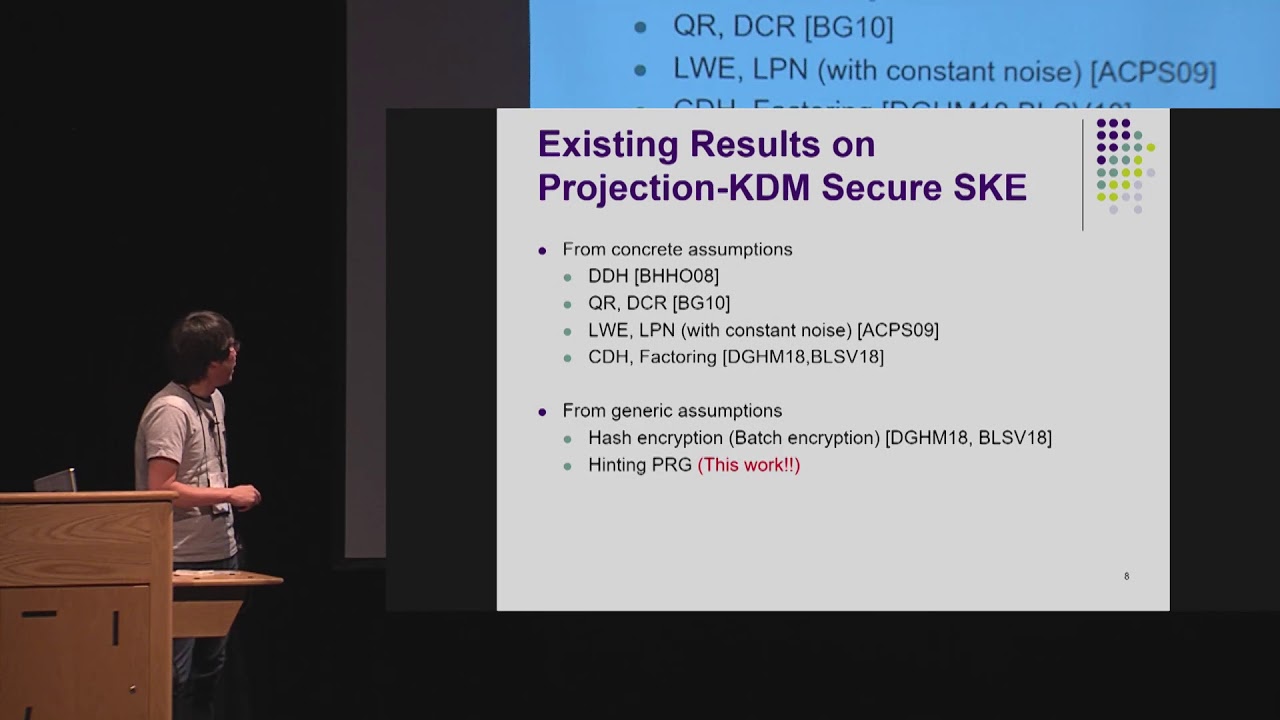Welcome to the resource topic for 2019/291
Title:
CCA Security and Trapdoor Functions via Key-Dependent-Message Security
Authors: Fuyuki Kitagawa, Takahiro Matsuda, Keisuke Tanaka
Abstract:We study the relationship among public-key encryption (PKE) satisfying indistinguishability against chosen plaintext attacks (IND-CPA security), that against chosen ciphertext attacks (IND-CCA security), and trapdoor functions (TDF). Specifically, we aim at finding a unified approach and some additional requirement to realize IND-CCA secure PKE and TDF based on IND-CPA secure PKE, and show the following two main results. As the first main result, we show how to achieve IND-CCA security via a weak form of key-dependent-message (KDM) security. More specifically, we construct an IND-CCA secure PKE scheme based on an IND-CPA secure PKE scheme and a secret-key encryption (SKE) scheme satisfying one-time KDM security with respect to projection functions (projection-KDM security). Projection functions are elementary functions with respect to which KDM security has been widely studied. Since the existence of projection-KDM secure PKE implies that of the above two building blocks, as a corollary of this result, we see that the existence of IND-CCA secure PKE is implied by that of projection-KDM secure PKE. As the second main result, we extend the above construction of IND-CCA secure PKE into that of TDF by additionally requiring a mild requirement for each building block. Our TDF satisfies adaptive one-wayness. We can instantiate our TDF based on a wide variety of computational assumptions. Especially, we obtain the first TDF (with adaptive one-wayness) based on the sub-exponential hardness of the constant-noise learning-parity-with-noise (LPN) problem. In addition, we show that by extending the above constructions, we can obtain PKE schemes satisfying advanced security notions under CCA, that is, optimal rate leakage-resilience under CCA and selective-opening security under CCA. As a result, we obtain the first PKE schemes satisfying these security notions based on the computational Diffie-Hellman (CDH) assumption or the low-noise LPN assumption.
ePrint: https://eprint.iacr.org/2019/291
Talk: https://www.youtube.com/watch?v=CQQ8D2Byx3w
See all topics related to this paper.
Feel free to post resources that are related to this paper below.
Example resources include: implementations, explanation materials, talks, slides, links to previous discussions on other websites.
For more information, see the rules for Resource Topics .
